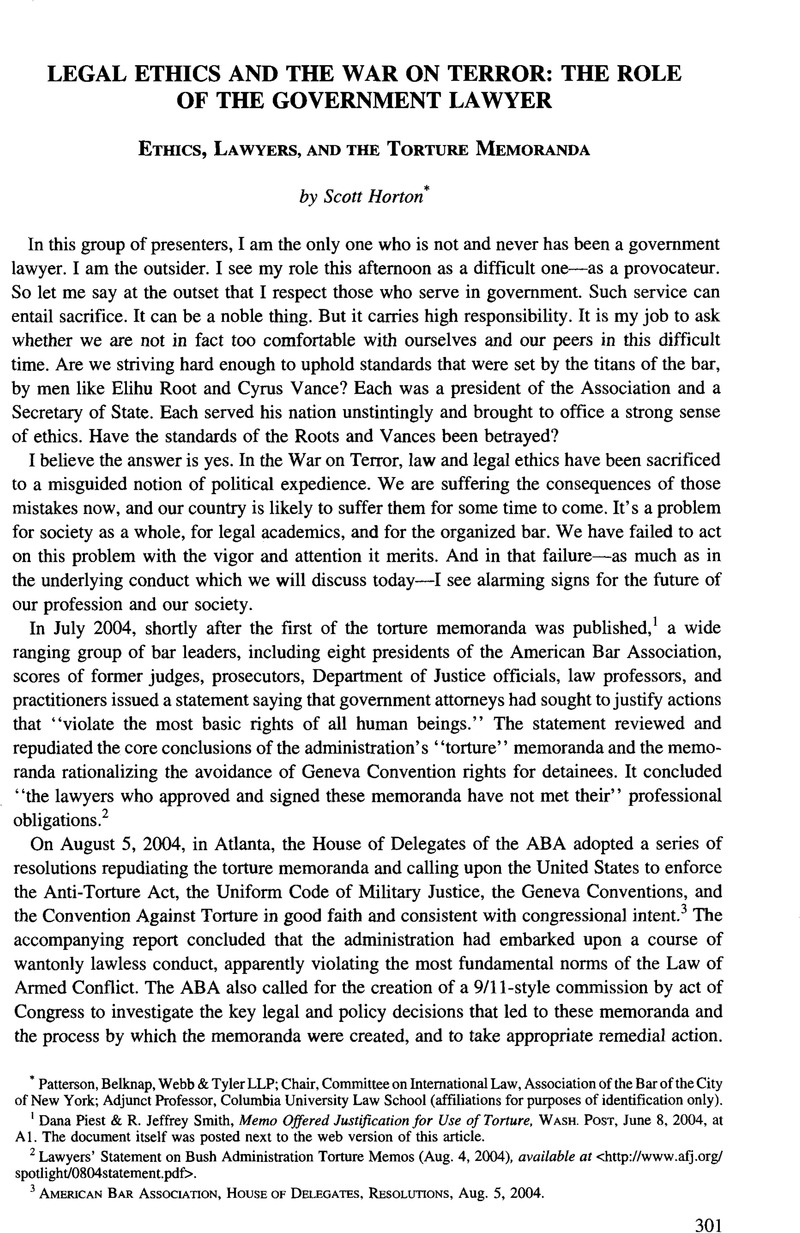No CrossRef data available.
Article contents
Ethics, Lawyers, and the torture Memoranda
Published online by Cambridge University Press: 28 February 2017
Abstract

- Type
- Legal Ethics and the War on Terror: The Role of the Government Lawyer
- Information
- Copyright
- copyright © 2005 The American Society of International Law
References
1 Piest, Dana & Smith, R. Jeffrey Memo Offered Justification for Use of Torture, Wash . Post , June 8, 2004, at Al. The document itself was posted next to the web version of this article.Google Scholar
2 Lawyers’ Statement on Bush Administration Torture Memos (Aug. 4, 2004), available at http://www.afj.org/spotlight/0804statement.pdf.
3 American Bar Association, House of Delegates , Resolutions , Aug. 5, 2004
4 5 U.S.C. § 3331 (2004).
5 Model Rules of Prof’ Conduct R. 1.2, 2.1 (2002).
6 Report by the District of Columbia Bar Special Committee on Government Lawyers and the Model Rules of Professional Conduct, 3 Wash . Law . 53 , 54 (1988 ).
7 A“whistleblower” under this act, 5 U.S.C. ₧ 2302(b)(8) (2000), is shielded for lawfully disclosing information that he or she reasonably believes evidences illegality, gross waste, gross mismanagement, abuse of authority, or a substantial and specific danger to public health or safety. If disclosure is specifically prohibited by statute, or by executive order as classified on national security grounds, an employee is only protected if the disclosure is made to the agency chief or delegee, such as an agency inspector general.
8 Model Rules of Prof’l Conduct R 2.1 (2002).
9 This legendary remark is quoted in McCandless v. Great Atlantic &Pacific Tea Co., 697 F.2d 198, 201-02 (7th Cir. 1983).
10 Model Rules of Prof’l Conduct R . 1.2(d) (2002).
11 United States v. Altstoetter, 3 Trials of War Criminals Before the Nuernberg Military Tribunals Under Control Council Law No . 10, at 954 (1949).
12 Helmuth James, von Moltke Briefe an Freya 46 (1995) (author”s translation).Google Scholar


